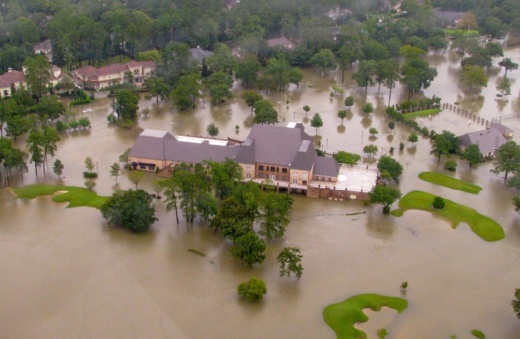In a July 1 letter to the city of Houston, the General Land Office announced that it plans to take control of $52 million in Hurricane Harvey disaster funds for recovery programs that were previously in the city’s control.
In separate emails July 7 and 8 to Houston’s Housing and Community Development Department, the city received notifications that the GLO would be removing the $52 million. $40 million of the removed funds come from the city’s Public Services Program—a program that services homelessness, domestic violence, housing services and those seeking job training—and $12 million comes from the department's economic development program—a program that supports small businesses and disenfranchised business owners, provide training, connections and access to capital.
“It is unconscionable that the GLO would remove funding from the city of Houston,” Melody Barr, deputy assistant director of Houston’s Public Services Program, said in a July 8 press release. “Our department and nonprofit service providers have worked tirelessly, answered numerous questions and submitted copious rounds of documentation, all to have the funds taken away to benefit the GLO’s own programs.”
Houston has repeatedly missed payment benchmarks set in the agreement by the city to ensure that sufficient progress was being made under each disaster relief program, according to the GLO’s letter. The city has missed seven of its nine benchmarks as of June 30, totaling almost $100 million. Due to this, the GLO believes Houston “lacks the capacity” to deliver the programs and that it will “continue to fall further behind,” the letter said.
According to the release from the department, the city made the GLO aware that the Public Services Program would not meet its benchmark deadlines. Instead, the department asked to have the funds shifted to the city’s Multi-Family Program—for multifamily projects, such as apartments, and developments—to increase affordable housing.
In a July 13 letter, Keith Bynam, the department's director, said the benchmarks were not proposed by the city and were instead negotiated by both parties. Bynam also said the GLO and other factors beyond Houston’s control, such as COVID-19 supply chain issues and labor shortages, hindered the city’s ability to succeed, but that despite this, tremendous progress has been made.
However, in an email to Community Impact Newspaper, officials from the GLO said that this is not the case.
“The GLO has not slowed the city of Houston from using disaster recovery funds—only prevented them from using them improperly,” GLO officials said. “Any delays are a result of the city of Houston’s misplaced focus on circumventing rules and requirements. This can no longer continue.”
The GLO has already rebuilt or is in the process of rebuilding 600 homes, while 850 homes are approved for construction; 400 homes cannot be helped due to the missing additional funds, officials said.
As previously reported by Community Impact Newspaper, the U.S. Housing and Urban Development Department has investigated the GLO for discrimination on the basis of race and national origin.
“This reverse Robin Hood effect is a calculated move by the GLO and has real ramifications,” Bynam said in the release. “Houstonians are not nameless widgets or numbers on a page; they are people with lives and jobs and families, and they deserve better. These Houstonians need help to recover, not be stripped of funds, have funds redirected or endure more delays.”
Unused funds will be used to meet the remaining needs of Houston homeowners, according to GLO officials.





